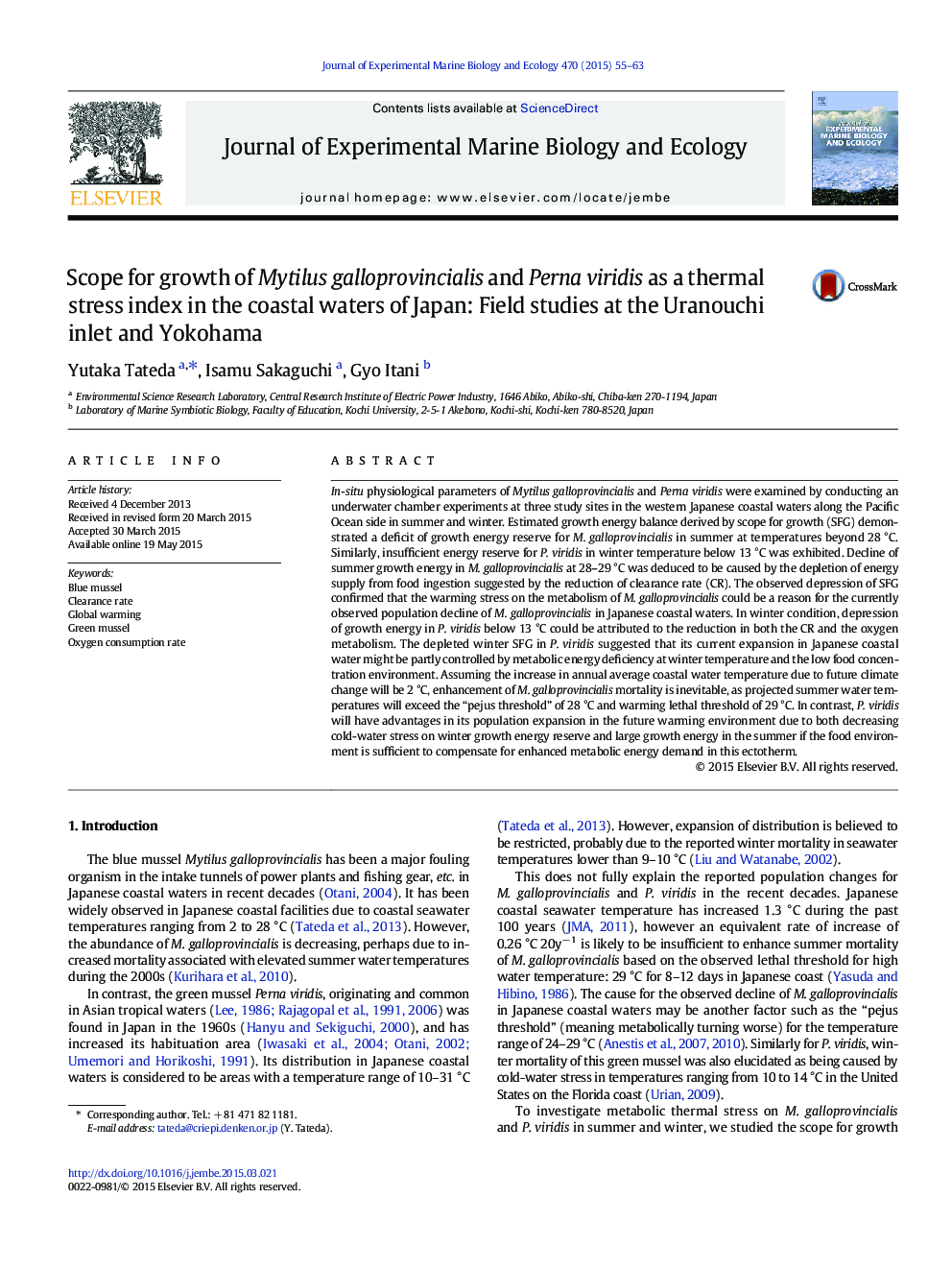| کد مقاله | کد نشریه | سال انتشار | مقاله انگلیسی | نسخه تمام متن |
|---|---|---|---|---|
| 4395332 | 1618405 | 2015 | 9 صفحه PDF | دانلود رایگان |

• Scope for growth for two mussels was estimated by field experiment in the Japanese coastal waters.
• Growth energy balance was deficits in M. galloprovincialis at summer temperatures beyond 28 °C.
• Energy reserves for P. viridis was insufficient at winter temperatures below 13 °C.
• Climate change will likely cause M. galloprovincialis summer survival difficult.
• P. viridis will have advantages in expansion due to increasing winter survival.
In-situ physiological parameters of Mytilus galloprovincialis and Perna viridis were examined by conducting an underwater chamber experiments at three study sites in the western Japanese coastal waters along the Pacific Ocean side in summer and winter. Estimated growth energy balance derived by scope for growth (SFG) demonstrated a deficit of growth energy reserve for M. galloprovincialis in summer at temperatures beyond 28 °C. Similarly, insufficient energy reserve for P. viridis in winter temperature below 13 °C was exhibited. Decline of summer growth energy in M. galloprovincialis at 28–29 °C was deduced to be caused by the depletion of energy supply from food ingestion suggested by the reduction of clearance rate (CR). The observed depression of SFG confirmed that the warming stress on the metabolism of M. galloprovincialis could be a reason for the currently observed population decline of M. galloprovincialis in Japanese coastal waters. In winter condition, depression of growth energy in P. viridis below 13 °C could be attributed to the reduction in both the CR and the oxygen metabolism. The depleted winter SFG in P. viridis suggested that its current expansion in Japanese coastal water might be partly controlled by metabolic energy deficiency at winter temperature and the low food concentration environment. Assuming the increase in annual average coastal water temperature due to future climate change will be 2 °C, enhancement of M. galloprovincialis mortality is inevitable, as projected summer water temperatures will exceed the “pejus threshold” of 28 °C and warming lethal threshold of 29 °C. In contrast, P. viridis will have advantages in its population expansion in the future warming environment due to both decreasing cold-water stress on winter growth energy reserve and large growth energy in the summer if the food environment is sufficient to compensate for enhanced metabolic energy demand in this ectotherm.
Journal: Journal of Experimental Marine Biology and Ecology - Volume 470, September 2015, Pages 55–63